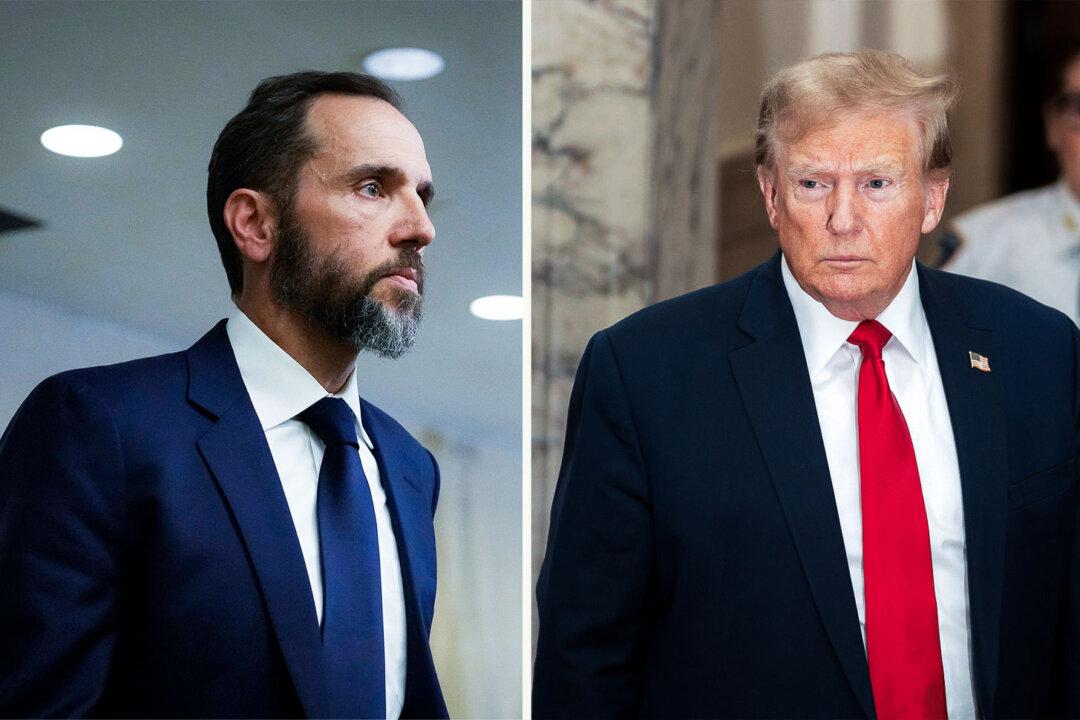Lawyers for former President Donald Trump argued in his classified documents case that special prosecutor Jack Smith has been given too many resources while other parts of the Department of Justice haven’t.
The former president faces dozens of charges that he allegedly illegally retained classified materials after he left office in 2021. He has pleaded not guilty to the charges and has sought to delay the trial, while U.S. District Judge Aileen Cannon has not set a firm date for when it will start.





